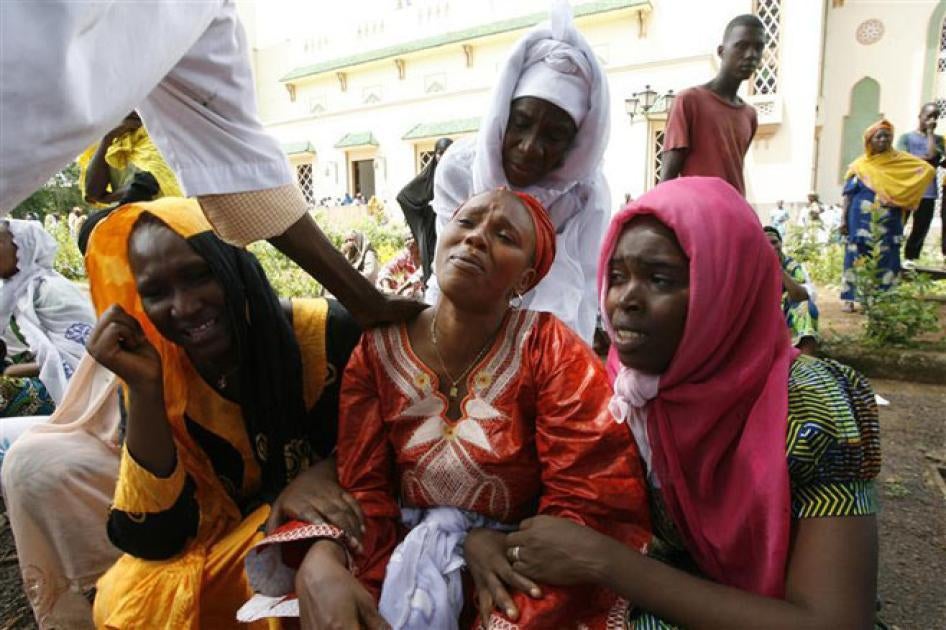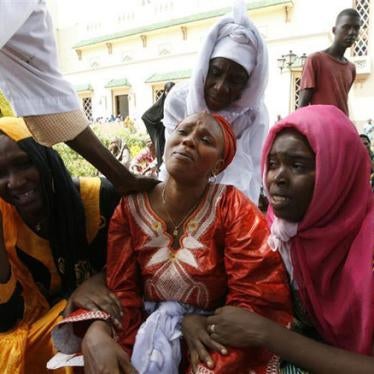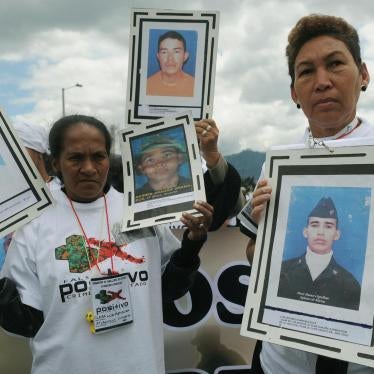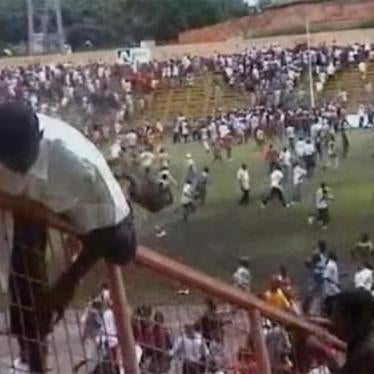On a Monday afternoon nine years ago, before Guinea’s President Alpha Condé took office, security forces stormed a Conakry stadium and murdered over 150 peaceful protesters. Their bodies were strewn all over the bloodied soccer pitch and stands. Dozens of women were raped.
During a recent interview by French media, the president explained his deep unease with the trial to hold to account those responsible for this atrocity because he didn’t “want Guinea to be associated with September 28… I do not want people to see Guinea through the eyes of that day.”
It is true that a trial of the September 2009 crimes will draw attention to Guinea, but not the kind that seems to be the president’s concern.
Fair, credible trials of the September 28 crimes would generate international praise, support, and respect by countries around the world.
This first trial in Guinea to address human rights violations would distinguish Guinea on the global stage for showing its commitment to human rights and the rule of law. Guinea would be a model for other countries to addressing accountability before their own courts.
Guinea is on the cusp of being able to deliver on its commitment to holding those responsible for the stadium massacre and rapes to account, but increased support from all Guinean authorities, especially President Condé, is needed for the process to succeed.
Indeed, Guinea deserves praise for the work already done to reach this point. In December 2017, Guinea’s justice minister announced that a panel of investigative judges had concluded its work after a seven-year investigation. Progress was slow but significant. The judges ultimately interviewed hundreds of victims and charged more than a dozen suspects, including two serving ministers.
In April 2018, the justice minister launched a steering committee consisting of government officials, international partners, and representatives of civil parties to the case to organize the trial, including determining the site, a schedule, and the budget. The prime minister was at the announcement, signaling his valuable support.
The European Union and the United States government have indicated that they can provide financial support for this complex trial. It could be used to enable adequate security measures and witness protection, among other assistance.
But for reasons that remain unclear, the steering committee has rarely met and there is growing concern that the process is grinding to a slow halt, leaving victims without redress and entrenched impunity for abuses in the country.
The International Criminal Court based in The Hague has a mandate to act as a court of last resort to try serious crimes when national courts fail to act. The ICC has been monitoring progress in the case and made clear that the court will take up the case if Guinean authorities do not hold those responsible for the stadium massacre to account.
At the commemoration of the September 2009 crimes that I attended in Conakry at the end of September, one speaker put the case for moving ahead well: “We are thirsty for justice. More has been achieved than what is left to do.”
Others I spoke with at the solemn events highlighted why prosecuting the crimes is so important. “Until there is justice, there will not be peace in my heart,” one man who was a victim of crimes at the stadium told me.
A woman who suffered sexual violence at the stadium said: “I suffer. Justice is what keeps me going, for the guilty parties to be judged.”
Another man told me: “As long as we have no justice, we have no peace. This is why we have to fight so hard for the guilty parties to be judged.”
There is no reason for any more delay in putting in place the elements of the trial, including selecting the site and setting out the specific resource requirements for it to take place effectively.
The investigation is complete, donors stand ready to support it, and victims await justice. When the trial opens, it will mark a day when the world sees Guinea as an example to Africa of promoting rights and justice, and President Condé as helping the country to turn a page on a painful history of impunity. Guinea will attract all the positive attention it will deserve for moving ahead.









